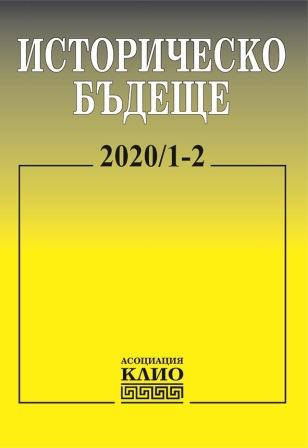Международната дунавска комисия, България, Германия и окъсяването на многонационалната река (март 1938 – март 1939 г.)
The International Danube Commission, Bulgaria, Germany and the Reduction of the Multinational River (March, 1938 – March, 1939)
Author(s): Rumen KaraganevSubject(s): History, Diplomatic history, Economic history, Recent History (1900 till today), Interwar Period (1920 - 1939)
Published by: Асоциация Клио
Keywords: Danube river; International Danube Commission; European Commission of the Danube; Anschluss; Sinaia Agreement 1938; Munich Agreement 1938; First Vienna Award; March 1939 invasion of the Czech lands
Summary/Abstract: The following study focuses on a period of one year – from March 1938 to March 1939, a period during which, due to Germany's revisionist approach, the work of the International Danube Commission (IDC) was greatly hampered, and the internationally regulated navigational regime of the Danube completely transformed. The chronological framework shown here is thus defined by two important for this study events – the Anschluss in Austria (March 12, 1938), as well as the invasion by German troupes in the Czech lands (March 15, 1939) and the establishing of the protectorate of Bohemia and Moravia. In order to better highlight the changes that have taken place in the navigational organization on the Danube during this one year, the introductory part summarizes the main points of the previous century-long attempt for cooperation in regards to navigation on the international Danube. That lasted until 1919, when the Entente adopted the regulations concerning the defeated states along the river. The specific „clauses relating to the Danube” in the Neuilly Peace Treaty, identical to the clauses in the treaties of the other countries defeated in World War I, are also outlined. The establishing of the navigation regime is studied, which led to the adoption of the Definitive Statute of the Danube (1921) that later became the basis for the future work of the IDC. The ‘romantic’ period in IDC’s existence ended in the second half of the 1930s, when Germany, which was gaining economic potential, clearly stated its comprehensive interest in the Danube-Balkan region. At the end of 1936, Berlin denounced the regulations of the Treaty of Versailles relating to the international rivers crossing its territory. This act partially changed the political, economic and structural reality in the Danube area. And so came March 1938, when the Anschluss led not only to another second shortening of the internationally traced waterway, but also to permanent tension in the work of the IDC. Meanwhile, the Third Reich pushes the agenda for its subsequent actions in regards to the waters – namely the removal of Britain and France from the Danube affairs. Its further efforts were increasingly focused in this direction – directly or indirectly they could be recognized both in the Munich Agreement (September 1938) and in the German-Romanian Treaty of March 1, 1939, under which Germany became a full member of the European Commission of the Danube. Eventually, the fatal for the future of the IDC event came about – the German invasion of Czechoslovakia (March 1939), with all its consequences.In relation to these dramatic events, the position of Bulgaria is presented, announced by its permanent representative in the IDC G. Lazarov, who is forced to maneuver between the initiatives of the democratic representatives on one hand and the revisionist counteractions on the other hand. The positives for the country from these dramatic events are also emphasized – the irreversible movements in the direction to forming its own modern river flotilla.
Journal: Историческо бъдеще
- Issue Year: 24/2020
- Issue No: 1-2
- Page Range: 93-115
- Page Count: 23
- Language: Bulgarian
- Content File-PDF

